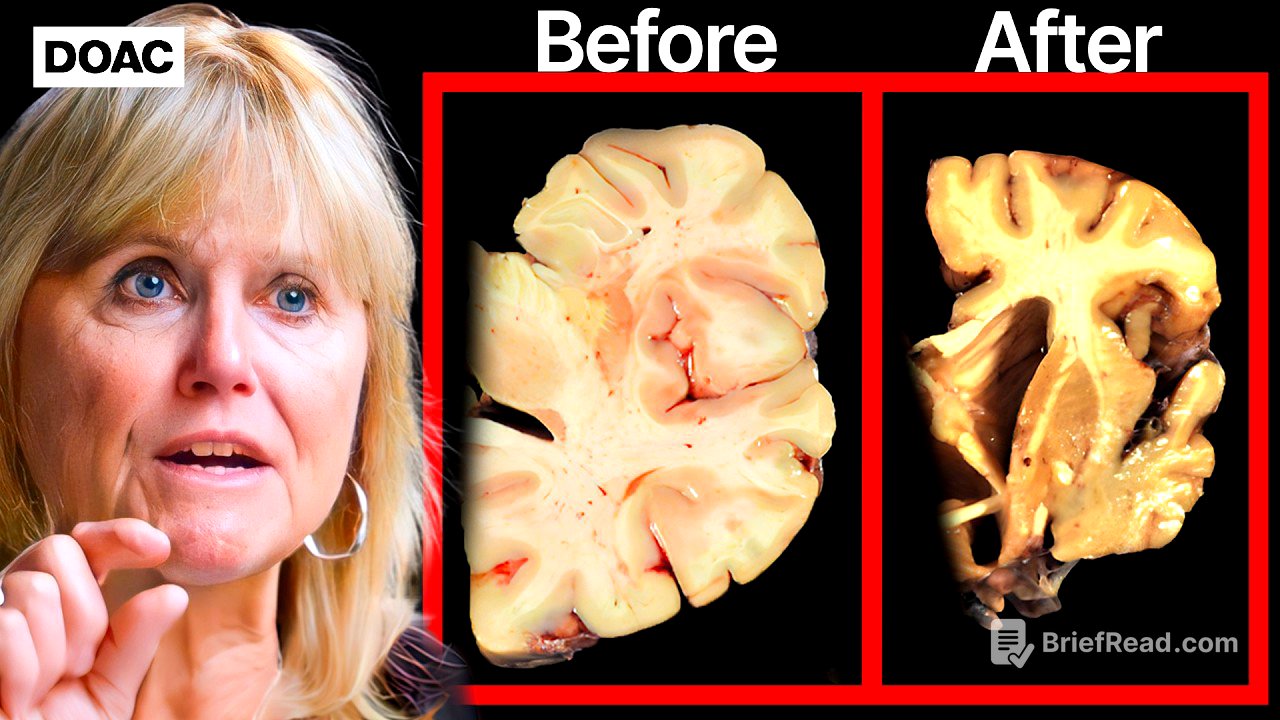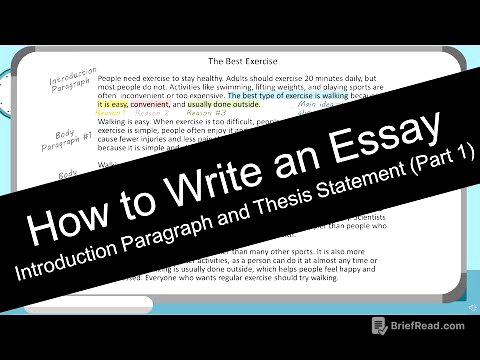TLDR;
This video discusses the differences between Alzheimer's and dementia, ways to avoid Alzheimer's, the role of inflammation and vascular health in brain diseases, and advice for parents regarding children playing contact sports. Key points include understanding dementia as a general term with Alzheimer's as a common cause, the importance of cognitive and physical fitness, managing inflammation and vascular health, prioritizing sleep, and making informed decisions about contact sports.
- Dementia is a general term for loss of cognitive abilities, with Alzheimer's being the most common cause.
- Maintaining high cognitive reserve through mental challenges and staying physically fit can help mitigate the symptoms of Alzheimer's.
- Inflammation and vascular issues in the brain are key factors in neurodegenerative diseases.
- Parents should carefully consider the risks of contact sports and ensure proper education and coaching for their children.
Dementia vs. Alzheimer's [0:00]
Dementia is a general term referring to the loss of mental abilities or cognitive functions. Alzheimer's disease is the most common cause of dementia, particularly age-related dementia. Other causes of dementia include Parkinson's disease with Louis Body Disease, frontotemporal lobar degeneration, and CTE (Chronic Traumatic Encephalopathy). CTE is specifically identified as a cause of dementia.
Avoiding Alzheimer's Disease [1:01]
Over 50% of people who live to the age of 85 may have Alzheimer's pathology in their brains, although not all will exhibit symptoms. To lessen the symptoms, it's important to stay socially connected and challenge your brain to develop a high cognitive reserve, which provides resilience against the disease. Physical and mental fitness, a healthy diet, and good cardiovascular health are also crucial. Avoiding high blood sugar and diabetes is important, as these conditions can hasten Alzheimer's disease. While alcohol doesn't directly cause Alzheimer's, it can exacerbate symptoms and is generally not good for brain health.
Increasing Awareness of Brain Diseases [2:56]
The prevalence of diseases like Alzheimer's and CTE is not necessarily increasing, but our awareness of them is. In the past, cognitive decline was often dismissed as "senile dementia" or simply old age. However, it's now recognized as abnormal or pathological aging. There's a much greater understanding of how common these diseases are compared to 40 years ago.
Theories on Alzheimer's and CTE [3:25]
Inflammation is a key promoter of brain disease and neurodegeneration, with significant inflammation present in both Alzheimer's and CTE. Addressing this "bad" inflammation could potentially prevent or delay these diseases. Small vessel disease and vascular health are also critical, as damage to the small blood vessels that oxygenate the brain can accelerate these diseases. More attention should be given to the earliest vascular changes and inflammation associated with these conditions.
Causes of Brain Inflammation [4:50]
Any insult to the brain can cause inflammation. Damage to blood vessels, leading to leaks, can introduce irritating substances into the brain. The blood-brain barrier normally keeps toxins out, but injured blood vessels compromise this barrier, promoting inflammation and facilitating neurodegeneration. Trauma, high blood pressure, high cholesterol, and high blood sugar can injure blood vessels. Stress and high cortisol levels also contribute. Reducing stress, staying physically fit, eating right, and getting enough sleep are essential for brain health. Sleep is particularly important for clearing out bad substances from the brain through its clearance system.
Advice for Parents on Contact Sports [6:26]
Parents should consider their child's needs and whether they could be equally happy in a non-contact sport. Promoting sports with low risk is advisable. If a child chooses to play a contact sport despite the risks, ensure the coach is well-versed in the adverse consequences of concussions and other hits to the head. Good education for the player, teammates, and coach is crucial. Delaying full contact play until the person is physically robust, with strong musculature and neck strength, is recommended. Be aware that blindsided hits are more damaging than expected hits.









